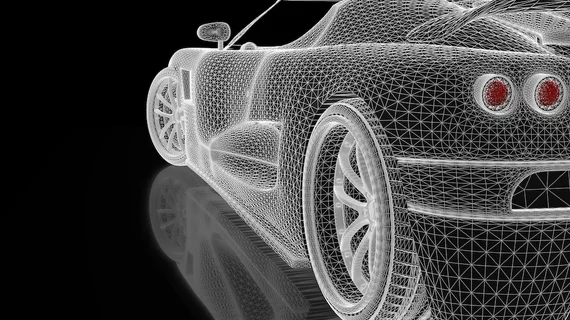The artificial intelligence (AI) is poised to change transportation with self-driving vehicles—and the technology’s impact on radiology will, some argue, will be equally seismic.
That was the argument made by Kimberly Powell, with Nvidia Corporation, and colleagues in a May 31 Journal of the American College of Radiology editorial, in which authors took lessons from Nvidia’s Drive AI platform and applied them to radiology’s technological evolution.
“Although we are just beginning to see the changes that will come to pass as a result of AI, these changes will come quickly, and they will profoundly affect all aspects of healthcare, perhaps most profoundly in radiology,” Powell wrote.
According to Powell et al., AI will impact pre-acquisition (protocol optimization and patient positioning), acquisition (iterative reconstruction, dose modulation and automatic view detection) and post-acquisition (disease detection, lesion classification, organ and lesion segmentation, quantification of numerous parameters and voice recognition).
Authors offered a few key takeaways and lessons for radiology as a whole.
Machine learning, AI will help create ‘intelligent instruments’
Algorithms are already changing the radiology landscape with CT scanners with integrated cameras to detect optimal patient position. In the short-term, those scanners will execute on optimized protocols for techniques such as: contrast bolus timing, contrast phases and dose modulation. This technology will then allow for advanced reconstruction and visualization such as automatic organ and lesion contouring, textural analysis and cinematic rendering, according to authors.
“It is important to realize that many of these features are not far-future applications in radiology but will be incorporated into routine clinical practice over the next few years,” Powell et al. wrote.
The only thing to fear about AI is fear itself
Radiologists have begun to see AI’s value as an aide, rather than a replacement. Powell suggests the evolving technology can help perform mundane tasks such as nodule detection or organ segmentation, freeing time to interact with images in more beneficial ways.
Ultimately, they argue, imaging professionals can harness AI to push past boundaries of diagnostic science and add depth to readings to produce positive outcomes for patients.
“Although it is difficult to predict how health care will evolve through AI, we should not fear the influence of this rapidly evolving technology. Instead of thinking about AI replacing our abilities, we should instead view AI as allowing us to ‘level up’ what we can accomplish,” authors wrote.

